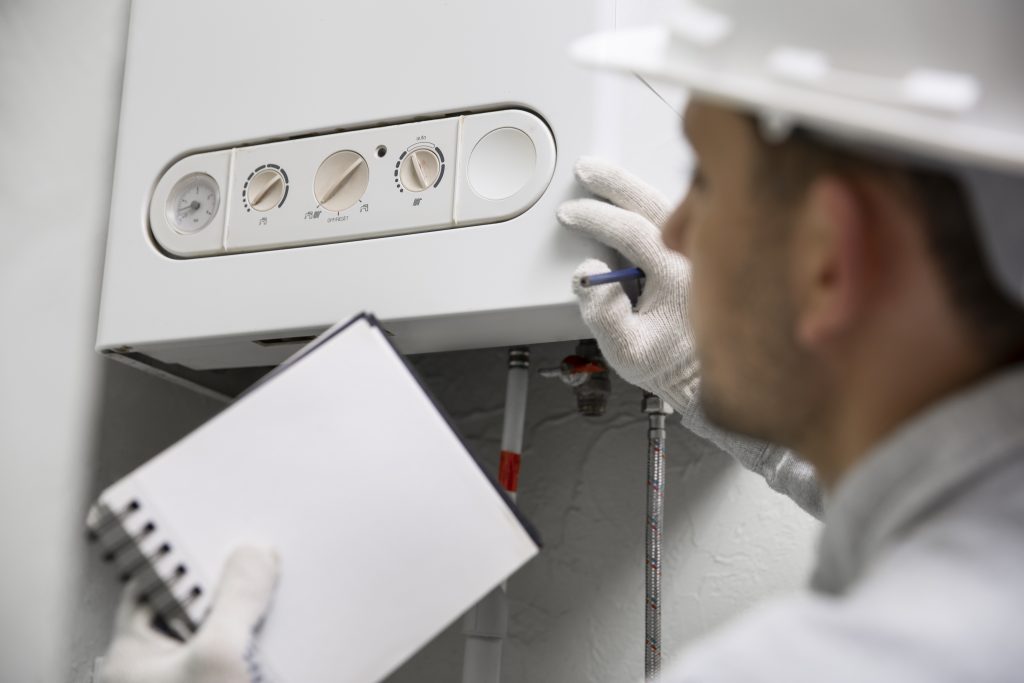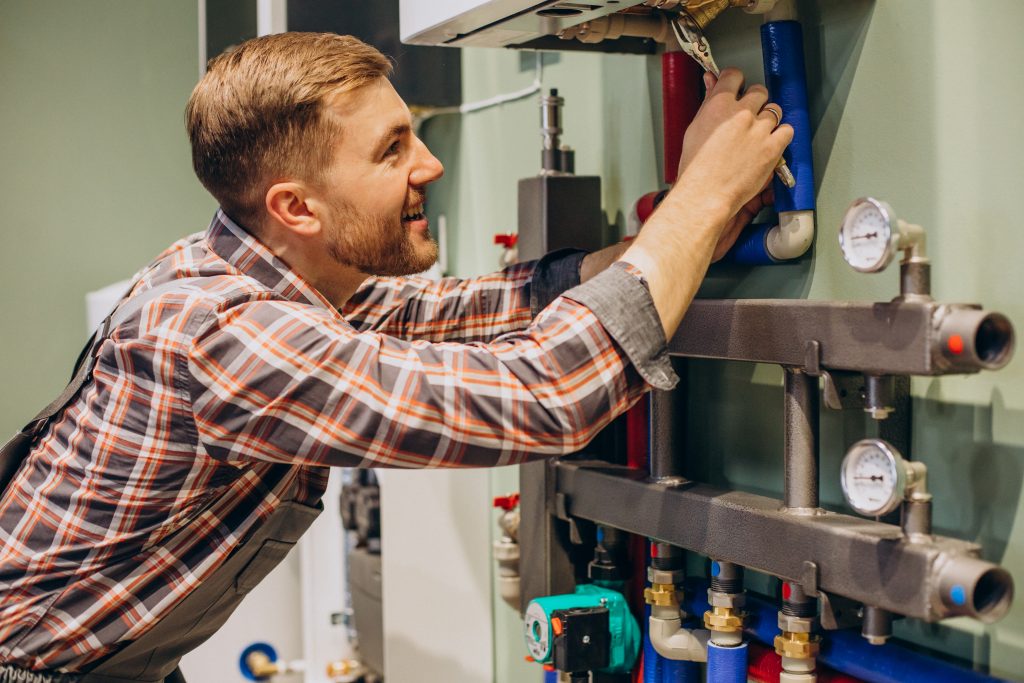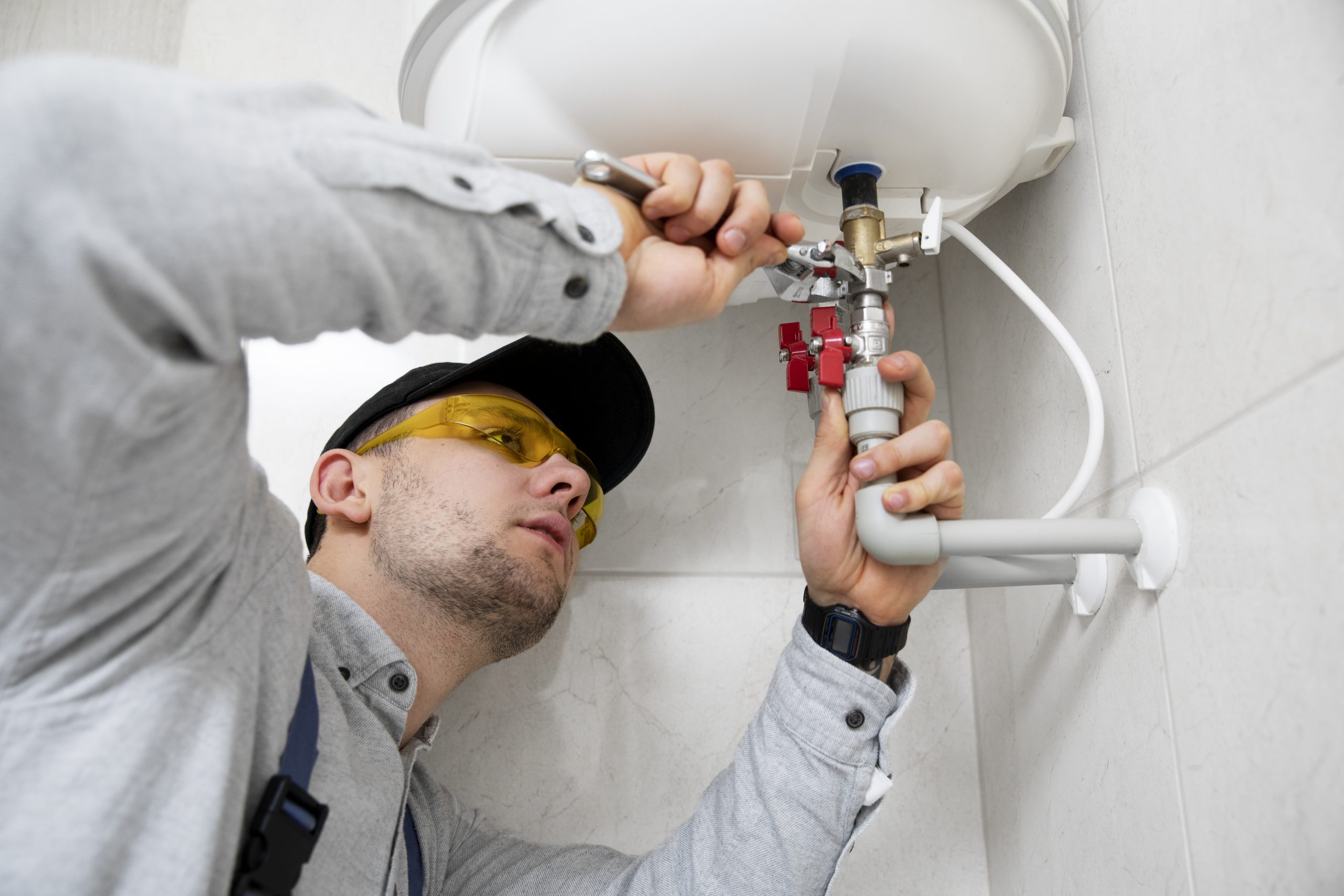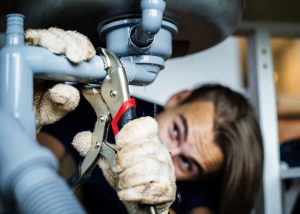You’re sitting at home on a quiet evening when suddenly your boiler roars to life, sounding exactly like an aeroplane preparing for take-off. It’s loud, unsettling, and a little scary.
If that’s happening in your home, you’re not alone. Noisy boilers are a common problem for UK households, especially during winter when heating systems are under pressure. But what causes this strange “aeroplane” sound, and more importantly, is it dangerous?
Let’s break down what’s really happening inside your boiler, what’s safe, what’s not, and how to fix or prevent it safely.
Is a Noisy Boiler Dangerous?
Not all boiler noises are dangerous, but some can be early warning signs of deeper issues. A healthy boiler should operate quietly, producing only a soft hum when running.
If you hear whistling, banging, gurgling, or a roaring sound like a jet engine, it means something inside the system isn’t working as it should.
Here’s a quick overview:
Noise Type | What It Means | Danger Level |
Low humming | Normal vibration | Safe |
Gurgling | Air trapped in system | Low |
Whistling or boiling sound | “Kettling” – overheating water | Medium to High |
Loud banging | Pressure or pump fault | High |
Roaring / Jet noise | Fan or flue issue | High |
Clicking / Buzzing | Electrical fault | High |
If the noise is constant, accompanied by leaks, burning smells, or flashing error codes, turn the boiler off and contact a Gas Safe registered engineer immediately.
Why Does Your Boiler Sound Like an Aeroplane?
That airplane-like roar isn’t random, it’s the result of air, water pressure, or mechanical faults inside the system.
Here are the most common reasons:
1. Kettling (Boiling Water Inside the Boiler)
When limescale builds up on the heat exchanger, it restricts water flow. The trapped water boils unevenly, producing steam bubbles that collapse with force, like a kettle boiling, but louder.
Typical symptoms:
- Rumbling or “boiling” sound
- Radiators slow to heat
- Boiler switches off suddenly
- Rumbling or “boiling” sound
Why it matters:
Continuous kettling can overheat your boiler, damage internal parts, and shorten its lifespan.
Fix:
Only a professional should descale the heat exchanger or perform a chemical flush.
Tip: If you live in a hard-water area, fit a magnetic or scale filter to reduce limescale buildup.
2. Trapped Air in Radiators or Pipes
When air becomes trapped in the heating system, it prevents water from circulating smoothly.
You’ll hear bubbling or gurgling, often louder in upstairs radiators.
DIY Fix:
- Turn off the heating.
- Use a radiator key to bleed the trapped air.
- Check system pressure afterward (1.0–1.5 bar is ideal).
If the noise returns, your system may have a leak or expansion vessel issue.
3. Pump or Bearing Problems
Your boiler’s circulation pump keeps hot water moving through the pipes.
When the bearings inside wear out, you’ll hear deep humming or vibrating, similar to a distant engine.
Why it happens:
Overuse, age, or debris buildup can strain the pump.
Fix:
Worn bearings may need lubrication, but often the pump requires replacement.
Ignoring it can cause overheating or reduced water pressure.
4. Loose Pipes or Mountings
Sometimes, the problem isn’t the boiler at all — it’s the pipework.
Loose or unsecured pipes can rattle against walls or floors as water rushes through, creating loud knocks or vibrations.
Fix:
Secure the pipes using clips or foam insulation.
Avoid tightening them too hard; metal expands slightly when heated.
Tip: If the noise only occurs when heating turns on or off, pipe expansion is the likely cause, not a boiler fault.
5. Fan or Flue Fault
If your boiler’s fan or flue is damaged or misaligned, it may create a roaring or whooshing sound, exactly like a jet engine.
Why it’s serious:
The fan ensures gases are safely expelled from your home.
A malfunction here can cause dangerous carbon monoxide leaks.
Fix:
Stop using the boiler and call a Gas Safe engineer immediately.
6. Pressure Imbalance
Boilers operate best at a stable pressure (usually 1–1.5 bar).
If pressure rises too high or drops too low, you’ll hear loud bangs or knocking as water flow struggles through the pipes.
Check the gauge:
- If too low, top it up using the filling loop.
- If too high, bleed radiators or contact an engineer.
Don’t overfill — too much pressure can trigger safety valves and leaks.
7. Limescale and Sludge Buildup
Hard water minerals and rust form sludge that clogs pipes and heat exchangers.
You might notice:
- Rumbling or popping noises
- Uneven radiator heating
- Yellow or dirty water when bleeding radiators
Fix:
A power flush removes sludge and restores quiet operation.

Boiler Noise Types, Causes, and Solutions
Noise Type | Likely Cause | DIY Action | Professional Fix |
Whistling / Hissing | Kettling or trapped air | Bleed radiators | Chemical or power flush |
Banging / Knocking | Pressure surge or pump fault | Check gauge | Pump repair or pressure valve fix |
Vibrating / Humming | Loose pipes or worn bearings | Secure pipes | Replace pump or fan |
Gurgling / Bubbling | Air pockets in pipes | Bleed system | Expansion vessel service |
Whooshing / Jet noise | Fan or flue problem | Do not attempt | Fan replacement, safety inspection |
What to Do Immediately
If your boiler is noisy but still heating water, here’s how to respond safely:
- Turn off the heating and let the boiler cool for 15–20 minutes.
- Check the pressure gauge.
- Too low (<1 bar): Repressurize.
- Too high (>2 bar): Bleed radiators.
- Too low (<1 bar): Repressurize.
- Bleed radiators to remove trapped air.
- Inspect visible pipes and valves for leaks.
- Listen carefully — note if the sound appears only when heating starts or when hot water runs.
- Check the condensate pipe — freezing or blockage can create back pressure and noise.
- Restart the boiler and monitor.
Safety Reminder: Even if the boiler still provides heat and hot water, unusual sounds mean it’s under strain — fixing it early saves money and prevents major damage.
When Boiler Noise Becomes Dangerous
Some sounds mean your system is reaching a critical failure point.
Here’s how to recognise the red flags:
Noise | Risk | Action |
Continuous roaring | Faulty fan or burner | Turn off boiler and call engineer |
Sharp metallic banging | High pressure or pump failure | Shut down immediately |
Hissing + overheating | Kettling (steam buildup) | Emergency service required |
Buzzing / clicking | Electrical component fault | Switch off power supply |
Rattling + leaking water | Broken seal / valve | Shut off water supply |
Do not remove the boiler cover or tamper with internal parts, it voids warranty and risks gas leaks.
DIY vs Professional Repair
Some boiler noises are minor and fixable with simple maintenance, but others require trained expertise.
Issue | DIY Possible? | When to Call Engineer |
Bleeding radiators | Yes | If noise returns within days |
Low pressure | Repressurize safely | If pressure drops repeatedly |
Loose pipe rattle | Clip & insulate | If sound comes from boiler casing |
Limescale / kettling | Requires specialist tools | Power flush or descaling needed |
Fan / flue noise | Dangerous | Gas Safe repair only |
Constant jet roar | Not safe for DIY | Emergency engineer required |
Engineers are typically trained to work with a variety of boiler systems, including well-known models like Worcester Bosch, Vaillant, Ideal, Baxi, and Glow-worm. This broad knowledge helps them diagnose and fix issues across different brands effectively.
How Much Does It Cost to Fix a Noisy Boiler?
Price varies depending on the issue, but here’s a realistic guide for UK homeowners:
Repair Type | Average Cost (UK) |
Radiator bleeding / system balance | £60–£90 |
Repressurization + minor tune-up | £80–£120 |
Replacing pump bearings | £120–£180 |
Chemical flush | £150–£220 |
Power flush (full system) | £200–£300 |
Fan or flue replacement | £250–£350 |
Full boiler replacement | £1,800–£2,500 |
Investing in an annual boiler service (about £80–£100) can save you hundreds in emergency callouts.
Preventing Boiler Noise (Long-Term Care Tips)
- Service the boiler yearly.
Regular servicing detects limescale, leaks, and air issues before they escalate. - Install a magnetic filter.
It traps debris and extends boiler life. - Use corrosion inhibitor fluid.
Prevents sludge buildup and protects the heat exchanger. - Bleed radiators every few months.
Especially before winter. - Check system pressure monthly.
Keeping it balanced ensures smooth operation. - Avoid hard water damage.
Fit a water softener if you live in a hard-water area. - Don’t ignore small noises.
Early attention can save hundreds in repair bills.
A quiet boiler is a healthy boiler, small maintenance habits make a huge difference.

Real Case Study: The “Jet Sound” Mystery
One of our EPG247 engineers recently visited a client in Cambridge whose combi boiler made a terrifying jet noise every time the heating switched on.
The homeowner feared the boiler was about to explode.
After inspection, our engineer found:
- Severe limescale inside the heat exchanger
- Pressure rising beyond 2.8 bar
- Faulty pump bearings amplifying vibration
Within 2 hours, after a chemical flush, pump replacement, and descaling, the boiler ran quietly again, no roar, no danger.
Moral: A noise might sound dramatic, but the fix is often straightforward when handled professionally.
FAQs
Why does my boiler sound like an aeroplane?
Because of trapped air, fan imbalance, or kettling, steam or air moving rapidly through the system creates that jet-like roar.
Is a noisy boiler dangerous?
Not always, but it can be. If the noise is continuous or accompanied by leaks, smells, or high pressure, turn it off and call an engineer.
My boiler makes noise but I have no hot water, why?
Your diverter valve or heat exchanger may be blocked. It’s best handled by a professional.
Boiler making noise when heating is on, normal?
Minor clicks are fine, but whistling, banging, or roaring sounds mean pressure or air problems.
Can I fix boiler noise myself?
You can bleed radiators and check pressure, but anything inside the boiler casing must be handled by a Gas Safe registered engineer.
Final Thoughts
A boiler that sounds like an aeroplane isn’t just annoying, it’s a clear sign that something inside the system isn’t right.
Most of the time, the cause is harmless, but ignoring the sound can turn a small fix into a costly repair.
By understanding what each sound means and taking simple precautions, you can keep your heating system running quietly and efficiently for years.
If you’re in the UK and your boiler noise persists after basic checks, a quick visit from a qualified engineer can restore peace (and warmth) to your home.
Expert advice adapted from real UK heating engineers with over a decade of experience ensuring boiler safety and reliability.









